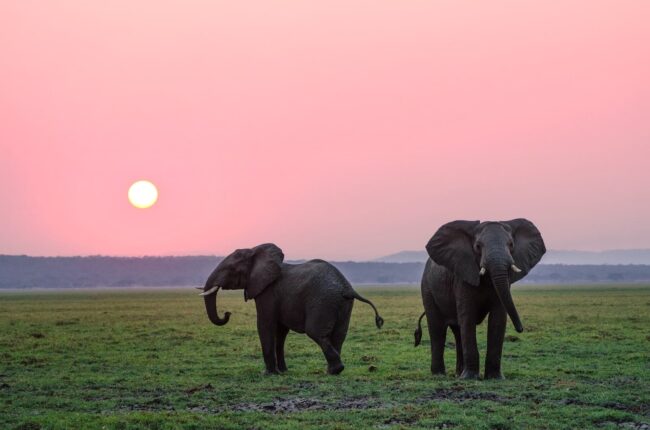Have you ever wondered how much sleep the largest land mammals on Earth get? It’s astonishing to find out that elephants, both African and Asian, get significantly less shut-eye than us humans. This article dives deep into the fascinating sleep habits of elephants, offering you not just the “how long,” but also the “why” behind their unique sleep patterns.
Table Of Contents
−- The Surprising Duration of Elephant Sleep
- The Intricacies of Elephant Sleep Patterns
- Why Do Captive Elephants Sleep More?
- The Biological Reasons Behind Brief Elephant Slumbers
- Elephants and Sleep Deprivation: How Long Can They Go?
- The Standing Sleepers: Do Elephants Sleep Standing Up?
- Why Standing is Safer Than Lying Down
- Conclusion
The Surprising Duration of Elephant Sleep
When it comes to catching Zs, elephants are some of the most frugal sleepers in the animal kingdom. On average, wild elephants in both Africa and Asia get merely 2 to 3 hours of sleep each day. Now, this isn’t because they’re too busy updating their social media profiles. Rather, elephants have a demanding routine that involves extensive foraging for food, social interaction, and traversing large territories.

In a controlled environment like a zoo, elephants may clock in around 4 to 6 hours of sleep a day. But make no mistake—this is still a far cry from the 8 hours recommended for humans.
The Intricacies of Elephant Sleep Patterns
Unlike humans, who usually aim for a continuous stretch of sleep, elephants do not have the luxury of sleeping for hours on end. Their sleep happens in short spurts scattered throughout both day and night. These short sleep periods can range from 30 minutes to an hour, and they are rarely ever consecutive.
It’s not uncommon for elephants to go sleepless for up to 48 hours, especially in the wild where the fight for survival is constant. Imagine running on two hours of sleep and still having the energy to forage for food, socialize, and trek across landscapes—all while weighing several tons!
Why Do Captive Elephants Sleep More?
If you’ve visited a zoo and found that the elephants there seem to sleep a tad longer, there’s a reason for it. Elephants in captivity often lack the mental and physical challenges that their wild counterparts experience. This reduced level of stimulation might be why they afford themselves a few extra hours of sleep.
The Biological Reasons Behind Brief Elephant Slumbers
What drives these mammoth creatures to sleep so little? For one, elephants are almost always on the move, covering extensive distances in search of food. When they do pause to take a brief nap, it’s often against a supportive structure like a tree or a large mound.
African elephants, for instance, tend to sleep for only about two hours and can even go nearly two full days without sleep. These sporadic rest periods often involve them leaning against something while they catch their quick snooze.
Elephants and Sleep Deprivation: How Long Can They Go?
Elephants have been observed to go without sleep for up to 46 hours during specific events, like migrations or when they’re being pursued by predators. The research indicates that their biology allows them to function effectively even when they’ve had little to no sleep for extended periods.
The Standing Sleepers: Do Elephants Sleep Standing Up?
Yes, elephants usually do sleep standing up. Given their routine of short, scattered sleep schedules, it’s more convenient for them to rest in a standing position. This enables them to be alert to any imminent threats and react quickly.
Why Standing is Safer Than Lying Down
One might wonder, why elephants choose to stand rather than recline. The answer lies in practicality and safety. First, elephants are perpetually in search of food. An adult elephant can consume up to 300 pounds of plant material in a single day. The process of getting up from a lying position is laborious for them, making standing the more efficient option.
Additionally, while adult elephants have fewer natural predators, younger and weaker individuals could be vulnerable to attacks from lions or tigers. By standing, they reduce the risk of becoming easy prey.
Conclusion
Elephants’ sleep patterns are as fascinating as they are unique, governed by both biological necessities and environmental factors. Whether it’s the brevity of their sleep or their preference for standing over lying down, every aspect is finely tuned to their lifestyle. So the next time you struggle to get your recommended eight hours, spare a thought for these magnificent giants who make do with far less.

Editorial Staff
Our writers, editors, content managers, and SEO specialist. We all take part in crafting amazing articles. We spend hours ensuring that each article is based on facts, researched, and thorough. You'll never want to click the back button to look for more answers other than here!
